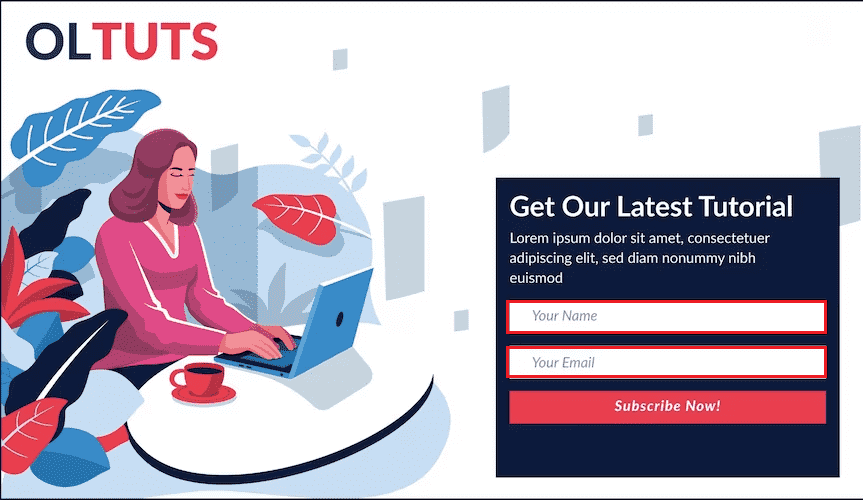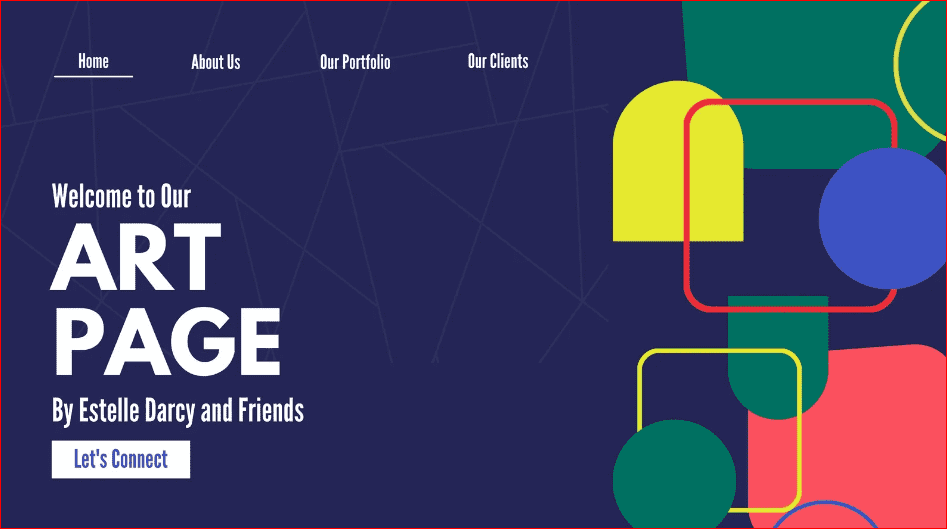Landing Page vs Website: What’s the Difference? [Ultimate Guide to Pick One]
If you want to create an online presence for your business, product, or service, you might wonder whether you need a landing page or a website. What’s the difference between a landing page and a website, and which one is more suitable for your goals?
To answer all these questions. This article will explain everything about a landing page and website. We will also show you some examples of landing pages and websites. So you can decide which one to choose for your online business.
So, without any further delay. Let’s dive right in!
What is a Landing Page?
A landing page is a single web page that directs visitors to take a specific action, such as signing up for a newsletter, downloading an ebook, buying a product, or registering for an event. Typically, a landing page has a clear and concise headline, a compelling offer, a strong call-to-action (CTA) button, and little to no navigation or distractions.
Types of Landing Pages
With respect to direct response marketing, there are two types of landing pages such as;
- Opt-in Page
- Sales Page
1. Opt-in Page
Also known as ‘Lead Capture Page’

The purpose of an opt-in page is to collect the visitor’s email address or other contact information in exchange for a free or valuable offer, such as a newsletter, an ebook, a webinar, a coupon, or a trial. A standard opt-in page includes the following:
- Catchy and clear headline
- A relevant and appealing image or video
- CTA button that tells visitors what they will get if they submit
- A Short form to collect visitors’ email or phone number
- Summary of main features or benefits of the offer in bullet points or paragraphs
2. Sales Page
Also known as ‘Sales Letter’

A sales page is a type of landing page that entices visitors to buy a product or service for a business. In general, a sales page usually has:
- A compelling headline with a clear value proposition
- An offer that solves a visitor’s problem
- Multiple CTAs with the same purpose
- Image or an embedded video sales letter
- List of the product’s main features
- Social proof, such as testimonials, reviews, and case studies
- FAQs to address visitors’ concerns or questions
- Bonuses or guarantees to attract visitors or reduce their risks
Use Cases of a Landing Page
In situations where you want to focus on a single goal and drive visitors to take action, landing pages are ideal. Some of the most common use cases of a landing page are:
- Launching a new product or service: You can create a landing page to showcase the features and benefits of your new offer, generate interest and excitement, and collect pre-orders or email subscribers.
- Running a marketing campaign: Using a landing page, you can promote a specific offer, such as a discount, a free trial, or a giveaway. Also, you can drive traffic to your landing page from various sources, such as social media, email marketing, or paid ads.
- Testing an idea or validating demand: To test the viability of your idea or determine the demand for your product or service, a landing page is an easy way to validate the proof of concept. Then, you can use tools like Google Analytics or Hotjar to track the performance of your landing page and gather feedback from your visitors.
What is a Website?

A website is a collection of web pages that provides information about your business, product, or service. Usually, it has more than one page with a navigation menu and links.
You can use your website for many purposes, including educating visitors, building trust and credibility, displaying portfolios, providing customer service, selling products, etc.
Almost all websites have a few essential pages that every visitor expects to see, such as:
- Homepage: It’s the first page visitors see when visiting your site.
- About Us: The About Us page tells the story of your business, its mission and vision, its values and culture, and its team members.
- Products or Services: This page explains what you offer to your customers, how it works, what problems it solves, and what makes it unique or superior to other options.
- Contact Us: This page includes multiple ways for visitors to contact you, such as phone number, email address, physical address, social media links, contact form, or live chat.
Types of Websites
There are many types of websites that serve different purposes and audiences. To make it easier for you, we have listed the five most common types of websites, along with some examples:
- Blog: Blogs are websites that publish content about topics that interest the owner or a particular audience. They can be personal, professional, or niche-based, often including features such as comments, social media sharing, and RSS feeds. Some examples of blogs are The New York Times Opinion, Seth Godin’s Blog, and The Minimalists.
- eCommerce: An eCommerce website is a type of website that allows users to buy and sell products or services online. Typically, these websites have features such as product pages, shopping carts, checkout pages, payment gateways, and order tracking. Amazon, Etsy, and Shopify are the most popular e-commerce websites.
- Business: A business website contains information about a company, its products, services, mission, vision, values, culture, and team members. Websites help businesses establish an online presence, build trust and credibility, generate leads, or sell products or services online. Examples of business websites are Stripe, Starbucks, and The Spice Suite.
- Personal: The purpose of a personal website is to represent an individual’s brand, identity, or interests. People use personal websites to share hobbies, passions, opinions, stories, or resumes. Tim Ferriss, Marie Forleo, and Neil Patel are the best examples of personal websites.
- Nonprofit: This type of website represents a nonprofit organization, such as a charity or an NGO. Nonprofit websites contain mission statements, donation buttons, volunteer opportunities, campaigns, and impact stories. Among the nonprofit websites are UNICEF, WWF, and Change.org.
Use Cases of a Website
A website is ideal for scenarios where you want to provide comprehensive information about your business, product, or service and establish an online presence that consists of several pages. The most common use cases for websites are:
- Establishing a Brand Identity: When building a brand identity online, there is no better option than creating a website for your business. It allows you to show your logo and all the basic visual elements of a brand. Also, you can add a mission and vision statement, testimonials, and all sorts of interactive features that allow users to engage with your brand.
- Building an online store: You can create a website to sell products or services online. You can display your catalog of products or services with images, descriptions, reviews, and ratings. Also, it allows you to integrate payment gateways, shipping methods, inventory management systems, and other e-commerce features.
- Starting a blog: If you’d like to share your knowledge or experience that interests you or relates to your niche, creating a blog is the way to go. The best part is that you can monetize your blog with ads, affiliate links, sponsored posts, or digital products.
- Creating a portfolio: A portfolio website lets you showcase your work professionally and attractively. You can display your portfolio in a gallery or grid layout, with details and links to each project. Additionally, you can include your resume, skills, awards, and contact information.
Keep in mind that the above four are not the only use cases for creating a website. You can create a website for a whole heap of purposes as long as it has all the essential elements of a website.
Landing Page vs. Website: Key Differences
Now that you know what a landing page and a website are, let’s compare them in design, functionality, purpose, and number of pages.
| Based on | Landing Page | Website |
| Design |
|
|
| Functionality |
|
|
| Purpose |
|
|
| Number of pages |
|
|
| Call to action (CTA) |
|
|
Final Verdict: Which One Should You Choose, a Landing Page or Website?
The answer depends on your goals and needs. A landing page is the best option if you want to focus on one specific offer and drive visitors to take action quickly.
On the other hand, a website is an excellent choice if you want to provide comprehensive information about your business, product, or service and establish an online presence that spans multiple pages.
However, the best thing is you can use both landing pages and websites in tandem to achieve different objectives. For example, by creating a landing page, you can drive traffic to your website where visitors can learn more about your business, product, or service and then promote the offer and vice versa.
Simply put, using both landing pages and websites together, you can optimize your online marketing strategy and increase your chances of success.
Frequently Asked Questions
Is a landing page a website?
A landing page is a type of website, but not all websites are landing pages. It consists of a single web page encouraging visitors to take a specific action, such as signing up for a newsletter, downloading an ebook, buying a product, or registering for an event.
What are the benefits of landing pages vs. websites?
Landing pages are highly effective at focusing attention, increasing conversions, and quick customization. Conversely, websites offer depth, versatility, and brand consistency for trust and content diversity.
What is another name for a landing page?
A landing page can also be called a squeeze page, a lead capture page, a sales page, or a destination page. These names reflect the different purposes or functions of a landing page.
Do I need a landing page if I have a website?
It is subject to your business needs and goals. A website is adequate to provide comprehensive information about your business, product, or service. Alternatively, if you want to focus on one specific offer and drive visitors to take action quickly, you might need a landing page besides your website.
Can landing pages replace a website?
Not entirely. Landing pages are great for generating leads or sales for a specific offer, but they cannot provide all the information visitors might need or want to know about your business, product, or service.
What are the three main differences between a website and a landing page?
Websites provide comprehensive information across various topics, offering a brand identity and diverse functionalities. In contrast, landing pages are laser-focused on specific goals, driving conversions through simplicity and tailored content.